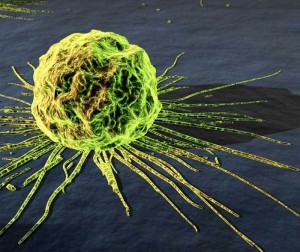A drug that is used to suppress tumors of colorectal cancer can help in fighting obesity, as per latest reports. Obesity is fast turning out to be an epidemic. With an increase in sedentary lifestyle, unhealthy diet and food habits and low physical activity, obesity is turning out to as major a risk as heart ailments or cancer. In fact, obesity is also the root of a lot of health conditions which range from arthritis and joint pains to heart ailments, diabetes and increased levels of bad cholesterol.According to the study in Thomas Jefferson University, guanylyl cyclase C, known more popularly as GCC, a hormone receptor used to suppress the growth and aggression of colorectal cancer, can also affectively fight obesity. The report was published on the 25th of August in the Journal of Clinical Investigation. The lead author, Scott Waldman, Chairman, Jefferson Department of Pharmacology and Experimental Therapeutics, said that the experiments conducted on mice returned very positive results. The researchers found that when GCC was administered, there was a marked reduction in the appetite of the mice. Another interesting aspect that the study showed is that mice which were administered this drug did not eat in excess and knew when to stop.

The study brought to light a connection between the hypothalamus and intestine and further showed that it is possible to suppress craving and control appetite with the use of this drug. The drug has never been studied for the effects that it might have on other parts of the body. All studies have been concentrated to the intestines. This revelation has come as a pleasant surprise.
Dr. Waldman said that mice that were deficient in GCC showed symptoms of obesity. When they were administered the drug, they got slimmer. He confesses to be baffled in the beginning because the drug had never been studied from body metabolism point of view. Mice were divided into two groups – those which were deficient in GCC and those which had healthy levels of it. The study found that when food was digested, GCC was released by the intestines, which sent a signal to the brain signaling when to stop eating. In mice that were short of this hormone, this signaling was weak, they kept eating and got fat.
The study has raised certain very important questions, the major of them being whether people who are obese are obese because of a genetic defect and biological rather than depending on lifestyle parameters. Dr. Waldman said that further studies are required to clarify these aspects.